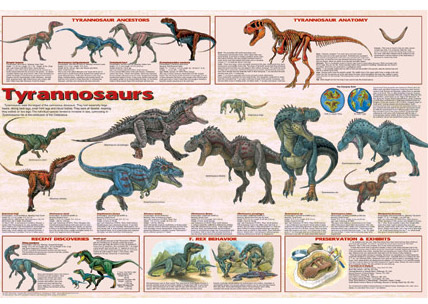What Special Gift to Buy the Person who has Everything?
Forget the Boxing Day Sales – how about Bidding for a Tyrannosaur at an Auction?
Today is the day when lots of people brave the high street crowds in a bid to snap up a bargain at the traditional Christmas holiday sales. Lots of shoppers may be looking for the latest HD ready television or the next game for their X-box 360 but if you want to purchase something a little different this year then an auction house based in the famous ski resort of Aspen (Colorado), is offering a tyrannosaurid head for sale.
Tarbosaurus Dinosaur Skull
However, be prepared to face up to some high rollers as dinosaur fossils and other prehistoric relics are being purchased by celebrities and other well-to-do folk. With a price tag of £225,000, this tyrannosaur skull is going to take a big bite out of your Christmas budget.
True enough, dinosaur fossils have become extremely popular over the last few years with many movie stars and celebrities purchasing rare items for their own private collections. Last summer Nicholas Cage and Leonardo Di Caprio went head-to-head bidding for another tyrannosaur skull at a Beverley Hills auction house.
To read this article: Dinosaur Bidding Wars.
The tyrannosaur skull has been classified as belonging to a Tarbosaurus bataar (means alarming reptile), a Late Cretaceous, Asian relative of Tyrannosaurus rex.
The 45 kilogramme skull which consists of about 75% fossil material, the remainder being restoration materials used to complete the skull, is being auctioned by the Nature Gallery by Rick Rolater, the gallery owner.
Rick has specialised in the sale of unusual and rare collectibles for more than 30 years, explaining people’s interest in the fossil he stated; “I think all of us are fascinated with dinosaurs”.
An Asian Tyrannosaur
Tarbosaurus was an Asian tyrannosaur that lived in the Late Cretaceous. Its remains were first found in the late 1940s when a joint Mongolian/Soviet expedition explored the Gobi desert. It may have reached lengths of 14 metres or so, making it the largest predator in the area at the time and top of the food chain. Despite the relatively abundant skull material that has been recovered (skull material is very important as it helps palaeontologists trace relationships between different genera); it is still debated whether Tarbosaurus is a separate genus.
There is a lot of conjecture as to whether this animal is sufficiently different from Tyrannosaurus to be granted its own distinct genus. What is for certain is that whether or not tarbosaurs and tyrannosaurs are different enough to merit their own individual genera, they are very closely related.
The tyrannosaur family tree remains shrouded in controversy. The lack of fossil evidence makes it very difficult to piece together the relationships between all the different types of Tyrannosauroidae. The earliest tyrannosaur remains have been ascribed to a small bipedal dinosaur found in Portugal but this has been challenged recently with possible Jurassic tyrannosaur finds in China (Guanlong – estimated to be 160 million years old).
At Everything Dinosaur we have been able to source a beautifully illustrated poster that shows the evolution of tyrannosaurs. It explains how these predators came to dominate food chains and charts their rise to prominence (and infamy) in the dinosaur pecking order.
The Evolution of the Tyrannosaurs Poster

Picture credit: Everything Dinosaur
To purchase posters and other dinosaur themed items: Visit Everything Dinosaur.
A founder of the chain of Discovery channel stores in the USA, Rick commented that his reputation as a seller of rare items and his network of contacts in the fossil hunting community enabled him to land the most prized items for sale at his Aspen gallery. Mr Rolater has run a similar venture at the exclusive ski resort of Beaver Creek before opening the gallery in nearby Aspen in 2005.
The well preserved skull is one of six that were exported out of Mongolia about 10 years ago. The skulls of large theropods are extremely scarce and this sale represents a rare opportunity to purchase a piece of palaeontology all for yourself. After all, they stopped making tyrannosaur skulls about 65 million years ago!

